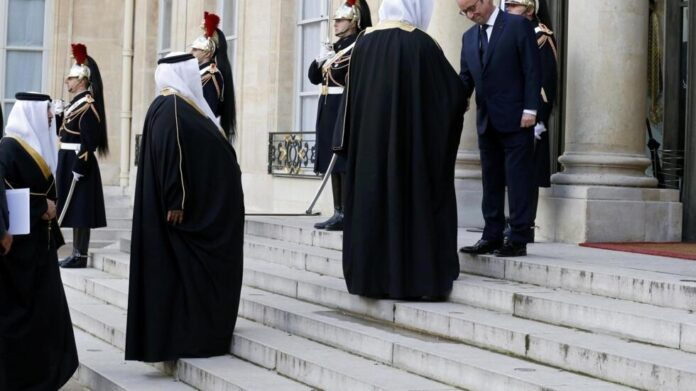Islamic fundamentalism has been a term fraught with controversy, misunderstandings, and intense discussions within both the Islamic world and the broader global context. This complex phenomenon, rooted deeply in the historical, religious, and political soil of Muslim-majority countries and communities worldwide, offers a rich tapestry for exploration. This article endeavors to unpack the multifaceted dimensions of Islamic fundamentalism, tracing its origins, evolution, and the impact it has wielded on global stages.
The Roots and Rise of Islamic Fundamentalism
Islamic fundamentalism, at its core, signifies a return to the original principles and practices of Islam, as perceived by its adherents. It emerged as a reaction against the perceived moral decay and the encroachment of Western values and colonial powers in Muslim lands. The late 19th and early 20th centuries marked the nascent stages of this movement, with thinkers like Jamal al-Din al-Afghani and Muhammad Abduh advocating for a return to the Quran and Sunnah as means to revive Islamic societies.
The Political Dimension of Islamic Fundamentalism
The 20th century witnessed the political mobilization of Islamic fundamentalism. The Iranian Revolution of 1979, led by Ayatollah Khomeini, stands as a monumental event that propelled Islamic fundamentalism onto the world stage. This revolution not only overthrew a Western-backed monarchy but also established an Islamic Republic based on Sharia law, setting a precedent for Islamic governance.
Similarly, the rise of Islamist groups in various parts of the world, including the Muslim Brotherhood in Egypt, Hamas in Palestine, and the Taliban in Afghanistan, underscored the political aspirations embedded within Islamic fundamentalism. These groups, despite their divergent methodologies and ideologies, share a common goal: the establishment of a political order grounded in Islamic principles.
Islamic Fundamentalism in the Context of Global Terrorism
The late 20th and early 21st centuries marked a period where Islamic fundamentalism became closely associated with global terrorism. The attacks of September 11, 2001, perpetrated by al-Qaeda, catapulted Islamic fundamentalism into the global consciousness as a major security threat. This event, coupled with subsequent acts of terrorism by groups claiming Islamic justification, has led to intense scrutiny and debate over the relationship between Islamic fundamentalism and violence.
The Social and Cultural Impacts of Islamic Fundamentalism
Beyond politics and security, Islamic fundamentalism has exerted significant influence on the social and cultural landscapes of Muslim-majority societies. It has advocated for strict adherence to Islamic codes of dress, gender roles, and social behaviors, often clashing with secular or liberal values. Countries like Saudi Arabia and Iran illustrate the profound impact of fundamentalist interpretations of Islam on societal norms and laws, particularly regarding women’s rights and freedoms.
Islamic Fundamentalism in the Digital Age
The advent of the internet and social media has transformed the landscape of Islamic fundamentalism, offering new platforms for dissemination and recruitment. Digital media has enabled fundamentalist groups to broadcast their ideologies, attract followers, and organize activities beyond geographical boundaries. This digital dimension has complicated global efforts to understand, engage with, and counteract the spread of fundamentalist narratives.
The Diverse Faces of Islamic Fundamentalism
It is crucial to recognize the diversity within Islamic fundamentalism. The term encompasses a wide range of groups, movements, and ideologies, each with its own specific goals, strategies, and interpretations of Islamic teachings. From the political Islamism of the Muslim Brotherhood to the militant jihadism of ISIS, the spectrum of Islamic fundamentalism defies monolithic representation.
Challenges and Controversies Surrounding Islamic Fundamentalism
The global discourse on Islamic fundamentalism is fraught with challenges and controversies. The conflation of fundamentalism with terrorism, the debates over religious freedom versus security, and the impact of external interventions in Muslim countries are among the myriad issues that complicate understanding and engagement with this phenomenon.
Looking Forward: Islamic Fundamentalism in the 21st Century
As the world moves further into the 21st century, the trajectory of Islamic fundamentalism remains uncertain. The ongoing conflicts in the Middle East, the rise of populist and nationalist movements worldwide, and the challenges posed by modernity and globalization will undoubtedly influence the evolution of Islamic fundamentalism.
In conclusion, Islamic fundamentalism is a deeply entrenched phenomenon that has shaped, and been shaped by, historical, religious, and political currents over the past century and beyond. Its impact on world history is indelible, manifesting in various domains from governance and law to culture and global security. Understanding the nuanced realities of Islamic fundamentalism, beyond the stereotypes and simplistic narratives, is essential for fostering dialogue, peace, and coexistence in an increasingly interconnected world.


